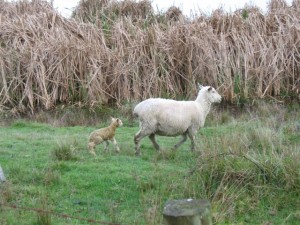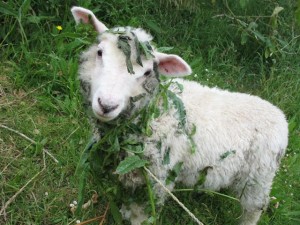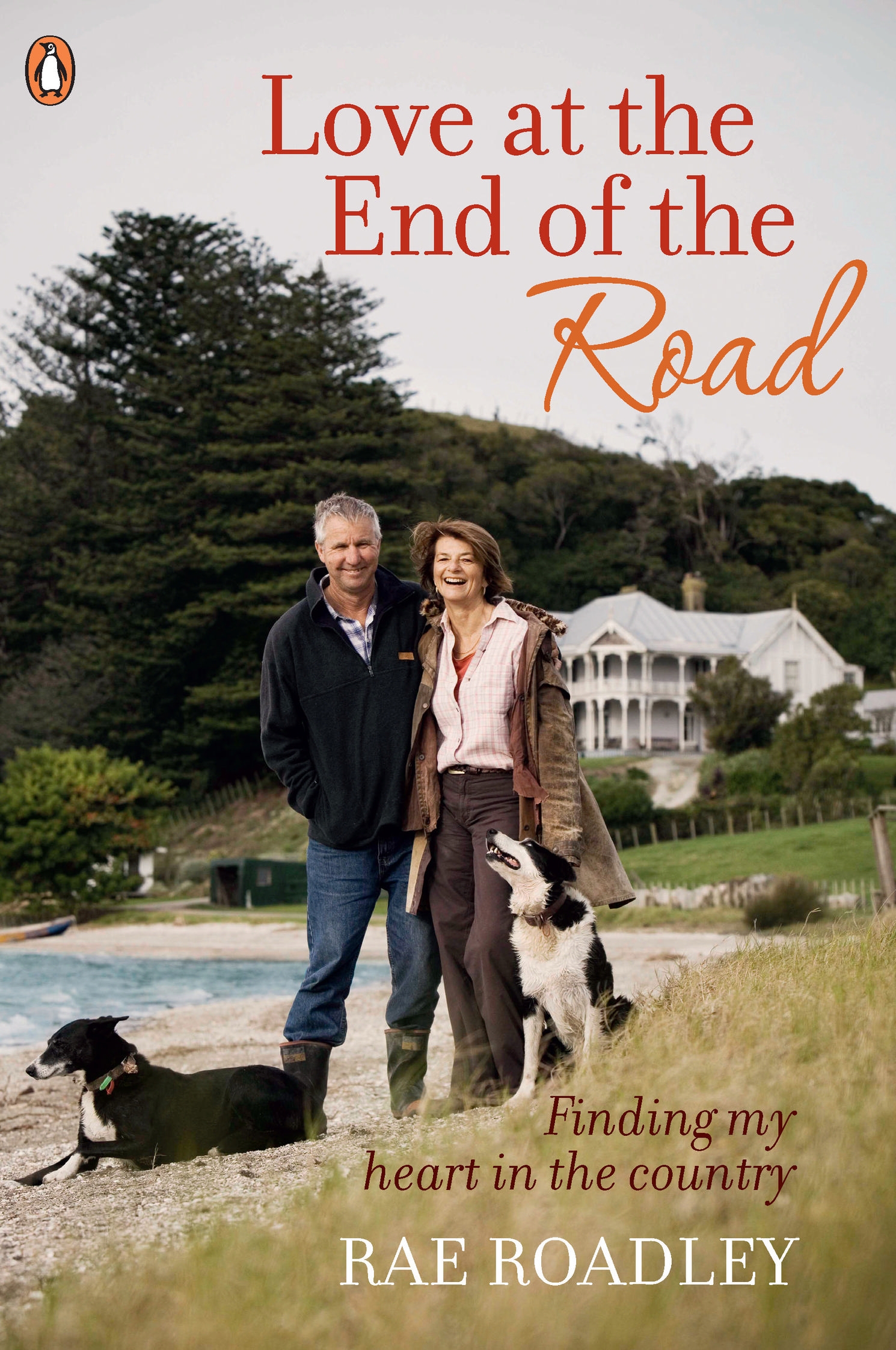
The suspected lamb whose bloody birth was seen by a passerby who assumed the sheep had ‘sprung a bearing’.
Spring has sprung, the grass has ris’, daffodils are blooming and lambs have bloomin’ popped out everywhere.
But unfortunately it’s not always a lamb that pops out but what farmers call a ring or bearing. In fact, it’s a prolapsed vagina.
The farmer reckons about three of his sheep a year suffer this misfortune which, generally, can happen just prior to lambing, often if a sheep is fat, has a full rumen, a full bladder and the lambs are about grown. The sheep’s internal accommodation is packed to the max – then some. Pop!
The Ministry of Primary Industries begins its webpage on the subject, thus: “Bearings (prolapses of the vagina) in ewes can be a problem every year as lambing approaches, even on the best-managed farms.”
There’s a delicate balance – insufficient feed in the weeks before to lambing can also be a culprit. Scanning can determine which sheep are expecting multiple lambs and need more food – but not too much.
In basic terms, the solutions for a prolapse are: clean it, let the bladder empty, shove everything back inside the sheep and hope it stays there – or euthanasia.
In the two cases I’ve seen the vagina didn’t stay put, despite the use of a special contraption and both had to be killed.
Case number on was a pregnant ewe and case two was Ashley, a too-fat former pet lamb. I made very sure no bits of little Ashley ended up in our freezer.
The worker’s grand-daughter had named her two pet lambs after the Olsen twins. After weaning, Mary-Kate joined the flock while Ashley hung around our garden gate and scoffed.
Last week at nine pm, the farmer took a call from someone who’d driven past earlier that day. She said she’d seen a sheep with its ring out, had left a note in our letterbox and asked whether the situation had been handled.
The caller was off a farm, she said, and she and her friends were appalled. Plus, she insisted, she saw the farmer drive past the suffering sheep without stopping, and she’d be in touch with the newspaper and SPCA if the sheep wasn’t taken care of.
As I said in Love at the End of the Road, farming is a high-vis business, and it’s Murphy’s Law that the day an animal dies/gets caught in a fence/breaks a leg/springs a ring is the day you’re off the farm or busy elsewhere.
The caller got so worked up, the farmer found no air time in which to say he wasn’t driving the ute she’d seen. The wife of a former farm worker who’d been to visit was at the wheel, and other visiting farmers hadn’t spotted the troubled sheep either.
The farmer’s next question, after the indignant caller hung up on him, was to me. Had I seen the note she’d left, given I’d just cleared the mailbox – after dark and during a TV commercial break?
Nope, sorry. As I love after-dark missions, we headed off with headlamps to see if we could spot the sheep and check the other farm mail boxes. We failed on all counts.
The farmer and farm manager scored another epic fail the next morning. But while they didn’t find a suffering sheep, a ewe with newborn lambs was in about the spot of the perceived crime. It had been a bloody birth and the ewe was still trailing the ripped amniotic sac.
The farmer concluded the appalled group might have seen a ewe giving birth – when the placenta appears first it can look like a prolapse.
Farmers appreciate passersby who take the time to report problems – when they’re kind, well mannered and don’t jump to conclusions or act like know-it-alls – even if they’re right.
I can confirm living on a farm doesn’t qualify anyone to be a farmer. Once while driving from the farm, I was politeness itself when I phoned the farmer to report a suspected dead bull. There it was, lying on its side and still as a rock with birds hopping about on its bulbous tummy. When the farmer checked it out soon afterwards it was standing up and eating grass.




